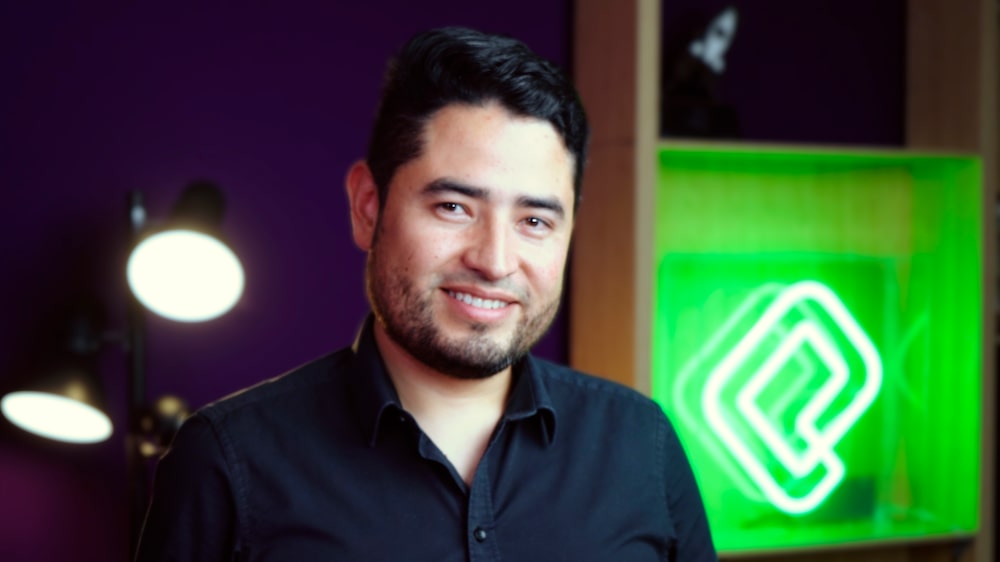Bogotá — Amid the wave of layoffs among startups, and the difficulties faced by some businesses in Colombia that have led them to close their operations, as was the recent case of Muni, the hiring of highly qualified people continues.
However, “these next 24 months are going to be terrible” for the country’s startup ecosystem in general, Colombian technology entrepreneur and founder of ed-tech Platzi Freddy Vega warned in an interview with Bloomberg Línea.
“These next 24 months are going to be terrible, but if history and the cycles of technology and financial bubbles have taught us anything, it is that the companies that survive grow and explode, and those that don’t, die,” Vega said, who was recently recognized in the UK as Entrepreneur of the Year by One Young World organization.
Vega says that the current context has created a situation “that sucks for everyone, especially for the employees who are laid off”.
And he fears that this will generate a situation in which risk, already inherent to the startup world, will end up punishing such companies, and this will be reflected in a surge in innovation.
The current situation has generated a number of responses, including that of Colombian serial entrepreneur Alexander Torrenegra, who agreed that “doing something unsustainable is not necessarily bad or irresponsible”.

“However, in the majority of cases when a startup lays off staff, it results in a situation that is unsustainable, and which is normal,” he said in a series of posts on Twitter.
“In the next 12-24 months several startups will die. And those that don’t will make mass layoffs. Some have already done so. Many will accuse them of being unsustainable, or accuse their founders of being irresponsible. That is ignorance, and foolish,” Vega tweeted.
Torrenegra replied in a tweet that “doing something unsustainable is not necessarily bad or irresponsible”. However, he continued, “in most cases, when a startup carries out mass layoffs it is because, by definition, it finds itself in an unsustainable situation, but, semantically, it is the right thing to do”.
Vega told Bloomberg Línea that the hiring of people who have been laid off from startups continues, following the departure from the country of companies such as Shopee, iFood and Beat, or the closure of local firm Muni.
According to data collected by Platzi, “people in the tech industry who have been laid off are getting jobs within a week or so after the layoff, because, although the macroeconomic structure is indeed changing, supply is still outstripping demand”.
What is also changing, he added, “is that before, when [such people] changed jobs, they almost always got a higher salary, and now they are receiving a salary that is relatively similar to the one they had before”.
In Freddy Vega’s opinion, “this simply means that the market is undergoing a correction”.
For her part, Adriana Garcés, director of talent solutions at ManpowerGroup, said that those who did not manage to find employment quickly take an average of two to five months to find a new job.
And those who are able to find a position the fastest are people who, on the one hand, are bilingual, have data analytics and platform management skills, and at the same time have worked very well on their personal brand in networks such as LinkedIn, Garcés said.
The debate about founders’ pay
Vega also referred to technology companies’ CEOs’ and founders’ pay, after Brazil’s Nubank reported that its founder, Colombian David Vélez, resigned his million-dollar income from shares in the company.
“The discussion of what CEOs can make reminds me a lot of the discussion of paying congress members less. It’s one of those moves that, depending on size and perspective, can make a difference, but generally doesn’t,” he says.
For Vega, this makes more sense in public companies where very aggressive compensation packages are offered, and where they already have an assured revenue stream with the goal of continuing to grow, but instead, “rarely, very rarely, in a startup the salary or compensation of the executive team or the founders is what makes the difference.”
“In startups, the promise that executives and founders play for is almost always the promise that eventually the equity, the stock value, is going to be the big reward. That means that it is extremely uncommon, in a startup, for a founder or a CEO to have a large salary-based compensation. Those things are myths,” he said.
“That said, I’m sure it’s politically correct, because people love to see these kinds of gestures, but it doesn’t mean it’s strategically correct, because companies are not one- or two-year games,” he said.
Vega believes that the formula for survival in startups, and the industry in general, comes down to how much they spend and how much they make.
If they were spending more than they were earning, in the past investors were willing to leverage that spending in exchange for more growth, he said. “And now, because of new macroeconomic factors they’re not, which is what’s happening. The founders and executives of these companies have no choice but to lower expenses or the company dies, because companies die when they run out of money, and that is what generates layoffs.”


